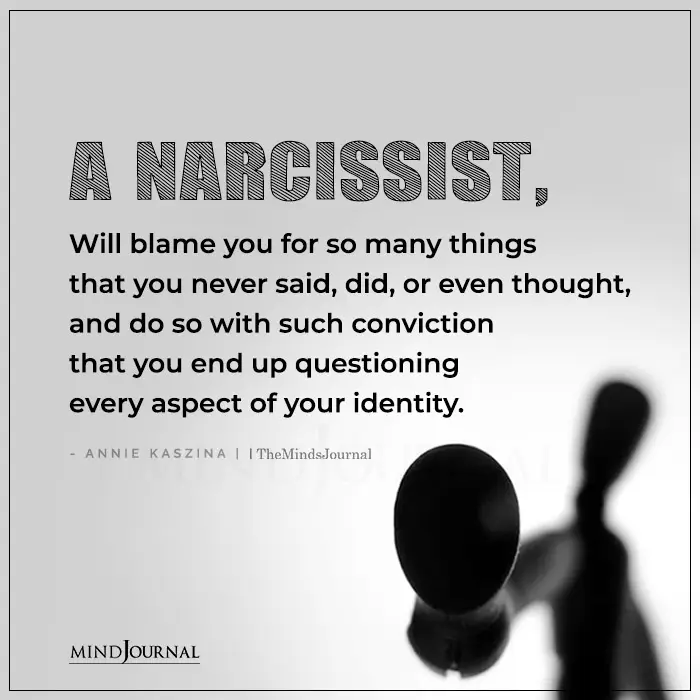How to know you are dealing with a narcissist? Realizing that you’re dealing with a narcissist can be one of the most challenging things you will ever have to do. Read on to know about early warning signs you’re with a narcissist.
Narcissists are very charming, successful, attractive, and highly manipulative. They are exceptionally confident and can easily make you feel like the most special person in the world. However, they cannot keep up with this game for too long. And eventually, you will find yourself trapped with a person with an exceptionally high sense of self-importance, selfishness, and entitlement.
It’s not easy loving someone with Narcissistic Personality Disorder. Dr. Craig Malkin offers a helpful guide to catching the signs of NPD early on in a relationship.
At the beginning of April this year, I was tapped by the Huffington Post Live team for a discussion on narcissism. I happily agreed to appear, for a number of reasons, not the least of which is that narcissism happens to be one of my favorite subjects.
Early in my training, I had the pleasure of working with one of the foremost authorities on narcissism in our field, and in part because of that experience, I went on to work with quite a few clients who’d been diagnosed with a narcissistic personality disorder. That’s where I learned that the formal diagnostic label hardly does justice to the richness and complexity of this condition.
The most glaring problems are easy to spot — the apparent absence of even a shred of empathy, the grandiose plans, and posturing, the rage at being called out on the slightest of imperfections or normal human missteps — but if you get too hung up on the obvious traits, you can easily miss the subtle (and often more common) features that allow a narcissist to sneak into your life and wreak havoc.
Read How To Know If You’re Dating a Narcissist
Just ask Tina Swithin, who went on to write a book about surviving her experience with a man who clearly meets the criteria for NPD (and very likely, a few other diagnoses). To her lovestruck eyes, her soon-to-be husband seemed more like a prince charming than the callous, deceitful spendthrift he later proved to be.
Looking back, Tina explains, there were signs of trouble from the start, but they were far from obvious at the time. In real life, the most dangerous villains rarely advertise their malevolence.
So what are we to do? How do we protect ourselves from narcissists if they’re so adept at slipping into our lives unnoticed?
I shared some of my answers to that question in our conversation i.e , how to know you are dealing with a narcissist and I encourage you to watch it. But there were a few I didn’t get to, and others I didn’t have the chance to describe in-depth, so I thought I’d take the opportunity to revisit the topic here. Tread carefully if you catch a glimpse of any of these subtler signs that you’re with a narcissist.
How to know you are dealing with a narcissist? 5 Signs To Know
1. Projected feelings of insecurity.
I don’t mean that narcissists see insecurity everywhere. I’m talking about a different kind of projection altogether, akin to playing hot potato with a sense of smallness and deficiency. Narcissists say and do things, subtle or obvious, that make you feel less smart, less accomplished, less competent. It’s as if they’re saying, “I don’t want to feel this insecure and small; here, you take the feelings.”

Picture the boss who questions your methods after their own decision derails an important project, the date who frequently claims not to understand what you’ve said, even when you’ve been perfectly clear, or the friend who always damns you with faint praise (“Pretty good job this time!”).
Remember the saying: “Don’t knock your neighbor’s porch light out to make yours shine brighter.” Well, the narcissist loves to knock out your lights to seem brighter by comparison. This is one of the early warning signs you’re with a narcissist.
2. Emotion-phobia.
Feelings are a natural consequence of being human, and we tend to have lots of them in the course of normal interactions. But the very fact of having a feeling in the presence of another person suggests you can be touched emotionally by friends, family, partners, and even the occasional tragedy or failure.
Narcissists abhor feeling influenced in any significant way. It challenges their sense of perfect autonomy; to admit to a feeling of any kind suggests they can be affected by someone or something outside of them. So they often change the subject when feelings come up, especially their own, and as quick as they might be to anger, it’s often like pulling teeth to get them to admit that they’ve reached the boiling point — even when they’re in the midst of the most terrifying tirade.
Read 8 Evasion Tactics Narcissists Use To Stop You From Questioning Them
3. A fragmented family story.
Narcissism seems to be born of neglect and abuse, both of which are notorious for creating an insecure attachment style. But the very fact that narcissists, for all their posturing, are deeply insecure, also gives us an easy way to spot them. Insecurely attached people can’t talk coherently about their family and childhood; their early memories are confused, contradictory, and riddled with gaps.
Narcissists often give themselves away precisely because their childhood story makes no sense, and the most common myth they carry around is the perfect family story. If your date sings their praises for their exalted family but the reasons for their panegyric seem vague or discursive, lookout. The devil is in the details, as they say — and very likely, that’s why you’re not hearing them. That’s another warning sign you are dealing with a narcissist.
4. Idol worship.
Another common narcissistic tendency you might be less familiar with is the habit of putting people on pedestals. The logic goes a bit like this: “If I find someone perfect to be close to, maybe some of their perfection will rub off on me, and I’ll become perfect by association.” The fact that no one can be perfect is usually lost on the idol-worshipping narcissist — at least until they discover, as they inevitably do, that their idol has clay feet. And stand back once that happens.
Few experiences can prepare you for the vitriol of a suddenly disappointed narcissist. Look out for any pressure to conform to an image of perfection, no matter how lovely or magical the compulsive flattery might feel.
5. A high need for control.
For the same reason narcissists often loathe the subject of feelings, they can’t stand to be at the mercy of other people’s preferences; it reminds them that they aren’t invulnerable or completely independent — that, in fact, they might have to ask for what they want — and even worse, people may not feel like meeting the request.
Rather than express needs or preferences themselves, they often arrange events (and maneuver people) to orchestrate the outcomes they desire. In the extreme form, this can manifest as abusive, controlling behaviors. (Think of the man who berates his wife when dinner isn’t ready as soon as he comes home).
He lashes out precisely because at that very moment, he’s forced to acknowledge that he depends on his wife, something he’d rather avoid.) But as with most of these red flags of dealing with a narcissist, the efforts at control are often far subtler than outright abuse. Be on the lookout for anyone who leaves you feeling nervous about approaching certain topics or sharing your own preferences.
Read 7 Troubling Signs You’re In Love With A Narcissist
Narcissists have a way of making choices feel off-limits without expressing any anger at all — a disapproving wince, a last-minute call to preempt the plans, chronic lateness whenever you’re in charge of arranging a night together. It’s more like a war of attrition on your will than an outright assault on your freedom.
None of these signs of dealing with a narcissist, in isolation, proves that you’re with a narcissist. But if you see a lot of them, it’s best to sit up and take notice. They’re all ways of dodging vulnerability, and that’s a narcissist’s favorite tactic.
Written by Dr. Craig Malkin Originally appeared in The Goodmen Project










Leave a Reply
You must be logged in to post a comment.